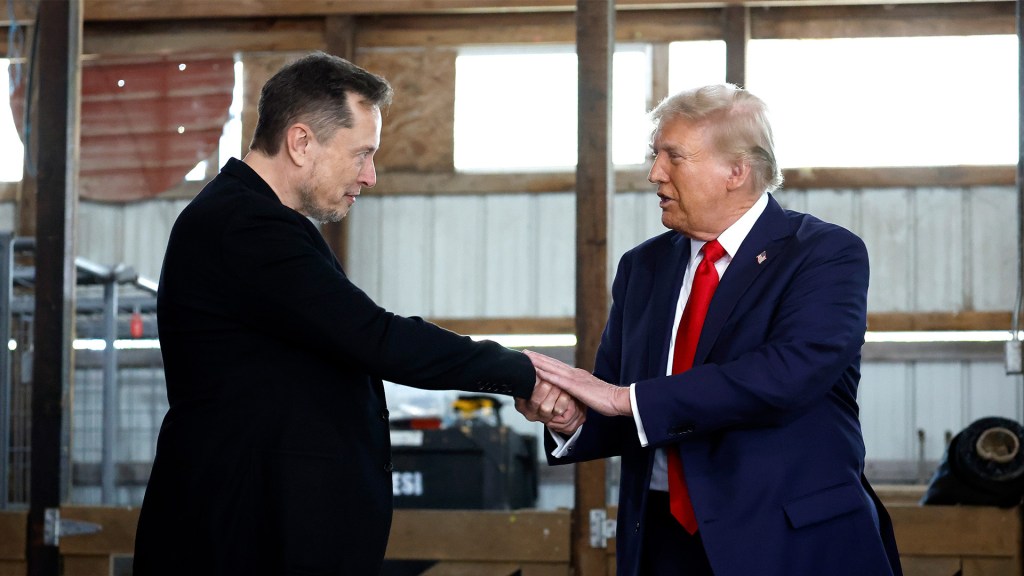
Commentary
-
Our commentary partners will help you reach your own conclusions on complex topics.
Supreme Court Associate Justice Clarence Thomas in his later years on the Court is beginning to speak out loudly.
And you can hear deep into his heart and humor during a recent speech at the University of Notre Dame on the topic of the Declaration of Independence.
His presentation was a brilliant and profound articulation of what America is about at its core.
Thomas not only tells his own personal story and how his experiences led him to understand what America is about, but what led him to conclude that the injustices of the country were not about flaws in the country but about flaws in human beings. What he conveyed to the students there were lessons in how to live up to the founding ideals handed down to them. That what needed to be fixed are the people – not the nation.
And I hope those students heading into adulthood heard him – as his insight strikes at the heart of the divisions going on today that are so bitterly dividing us.
He discussed how easy it was for him to slide into feelings of victimhood and thus focus on racial differences and grievances as a young man, yet, Thomas said, “As I matured, I began to see that the theories of my young adulthood were destructive and self-defeating ..” Thomas said, “I had rejected my country, my birthright as a citizen, and I had nothing to show for it.”
“The wholesomeness of my childhood had been replaced with an emptiness, cynicism, and despair. I was faced with the simple fact that there was no greater truth than what my Nuns and grandparents had taught me. We are all children of God and rightful heirs to our nation’s legacy of equality. We had to live up to the obligations of the equal citizenship to which we were entitled by birth.”
“The Declaration captured what I had been taught to venerate as a child but had cynically rejected as a young man. All men are created equal, endowed by their Creator with certain inalienable rights.”
Despite the strident voices dividing us today, Justice Clarence Thomas observed that there are many more of us who feel America is not so broken, as it is adrift at sea.
He said, “For whatever it is worth, the Declaration of Independence has weathered every storm for 245 years. It birthed a great nation. It abolished the sin of slavery…While we have failed the ideals of the Declaration time and again, I know of no time when the ideals have failed us.”
The Declaration of Independence “establishes a moral ideal that we as citizens are duty-bound to uphold and sustain. We may fall short, but our imperfection does not relieve us of our obligation.”
Justice Thomas’ message about the Declaration was not just for those Notre Dame students. It is for all of us – summarized: there are eternal truths, they are true for all of humanity, and it is the personal responsibility of each individual to live up to them.
His message is exactly what every American needs to hear in these troublesome and divisive times.
-
Trump, Bondi crack down on sanctuary for criminal migrants
Attorney General Pam Bondi announced that the Justice Department (DOJ) is suing Chicago, along with the states of Illinois and New York, as part of the Trump administration’s crackdown on undocumented immigrants and jurisdictions that restrict cooperation between federal immigration agents and local police. President Donald Trump has frequently criticized Chicago and Illinois for having… -
President Trump leads with bold action
The first few weeks of President Donald Trump’s second term have sparked a range of public controversies on everything from the Jan. 6 pardons to the abrupt shutting down of USAID and a constitutional crisis between the branches of government. But while Democrats raise alarms over these and other concerns, Republicans are celebrating the achievement… -
Voters are demanding a global course correction
The reelection of President Trump in the U.S., along with the rise of far-right populist figures like Javier Milei in Argentina, Giorgia Meloni in Italy, and Conservative Party leader Pierre Poilievre in Canada, reflects a growing backlash against traditional politicians. Economic struggles, frustration with government “elites,” and debates over cultural issues like gender ideology are… -
Why Trump is right to take aim at federal DEI programs
The new Trump administration is cracking down on the federal government’s diversity, equity and inclusion (DEI) programs, including in the military and in the Department of Education. Trump officials are ordering all federal DEI employees to be placed on leave and eliminating DEI considerations in hiring following an executive order the president signed on his… -
President Trump should reverse Biden’s abuses and protect human life
Donald Trump campaigned on leaving abortion laws for individual states to decide for themselves, but critics say that will be a tough position for him to maintain while president as he faces Republican pressures to enact stricter federal anti-abortion policies. President Trump’s Department of Health and Human Services has taken down the federal government website…
Latest Opinions
-
 Getty Images
Getty Images
Nevada Gov. Lombardo, AG Ford disagree over immigration policies
-
 Getty Images
Getty Images
Trump administration plans to close more than 100 IRS offices: Report
-
 Getty Images
Getty Images
IL undocumented immigrant health care program 286% costlier than expected
-
 Getty Images
Getty Images
NFL debate: Is Heisman winner Travis Hunter a wide receiver or cornerback?
-
 Getty Images
Getty Images
Christianity’s decline in US slowing slightly according to new poll
Popular Opinions
-
In addition to the facts, we believe it’s vital to hear perspectives from all sides of the political spectrum.






